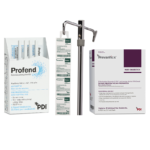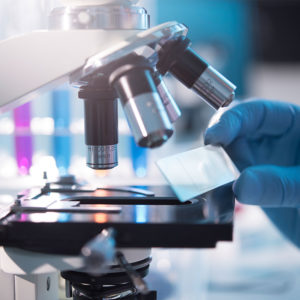Interventional Care


We notice that you are visiting us from . This site only services US-based visitors. Would you like to visit the site that is appropriate for your location?

Under the Microscope with Dr. David Weber explores what’s new in industry literature and provides a synopsis, along with key takeaways.
This Week’s Review:
Survival of SARS-CoV-2 and influenza virus on the human skin: Importance of hand hygiene in COVID-191, authored by Hirose R, Ikegaya H, Naito Y, Watanabe N, Yoshida T, Bandou R, Daidoji T, Itoh Y, Nakaya T. addresses how SARS-CoV-2 has been shown to survive for hours to days on environmental surfaces; however, the survival of SARS-CoV-2 on human skin has not been determined.
The study evaluated the stability of SARS-CoV-2 and influenza A virus (IAV), mixed with culture medium or upper respiratory mucus, on human skin surfaces and the dermal disinfection effectiveness of 80% (w/w) ethanol against SARS-CoV-2 and LAV. A model was developed that allowed the safe reproduction of clinical studies on the application of pathogens to human skin to elucidate the stability of SARS-CoV-2 and IAV on human skin. In addition to testing the survival of the viruses on human skin obtained from autopsies, survival was also assessed on stainless steel, glass, and polystyrene.
SARS-CoV-2 was demonstrated to survive for 9.04 hours (95% confidence intervals, 7.96-10.2 hours) while the survival of IAV was 1.82 hours (95% CI, 1.65-2.00 hours). SARS-CoV and IAV were inactivated more rapidly on skin surfaces than on other surfaces (stainless steel/glass/plastic). IAV on other surfaces were inactivated faster in mucus versus medium conditions, while SARS-CoV-2 showed similar stability in the mucus and medium; the survival time was significantly longer for SARS-CoV-2 than for IAV [11.09 hours (95% CI, 10-22-12.00 hours) vs. 1.69 hours (1.57-1.81)]. Importantly, both SARS-CoV-2 and IAV in the mucus/medium on human skin were completely inactivated within 15 seconds by ethanol treatment.
In conclusion, the 9-hour survival of SARS-CoV-2 on human skin may increase the risk of contact transmission in comparison with IAV, thus accelerating the pandemic. Proper hand hygiene is important to help prevent the spread of SARS-CoV-2 infections.
1Clin Infect Dis. 2020 Oct 3:ciaa1517. doi: 10.1093/cid/ciaa1517. Epub ahead of print. PMID: 33009907